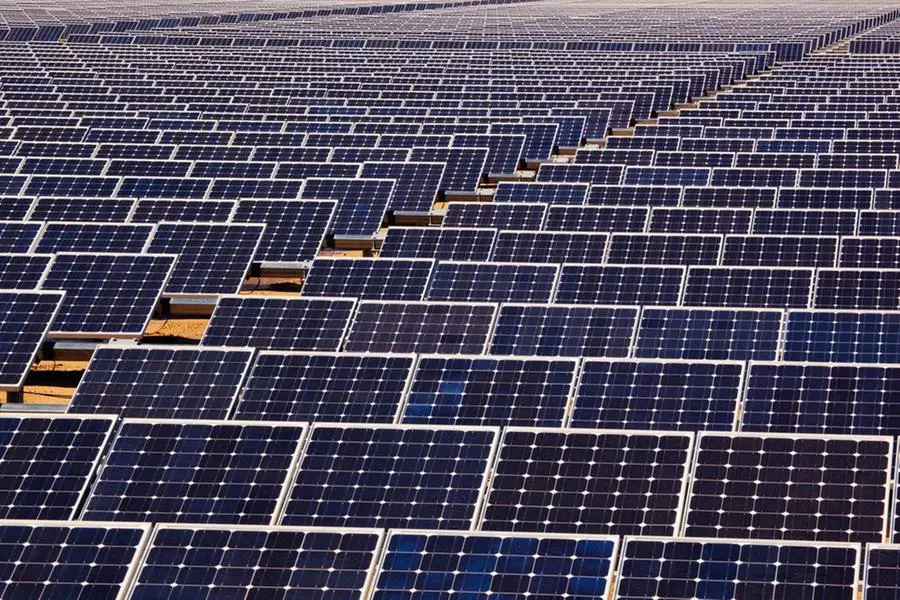PHOTO
The Ministry of Climate Change and Environment of the United Arab Emirates has set out four main priorities for its new National Climate Adaptation Programme (NCAP), a long-term initiative endorsed by the government last month.
The first priority is to evaluate climate adaptation efforts and identify any gaps in four sectors: energy, public health, environment and infrastructure, a ministry official said at an event detailing the climate change plan in Abu Dhabi on Tuesday.
The second priority is to raise awareness within these sectors by developing a training programme and implementing it.
“The key milestone of 2017 is putting the comprehensive, long-term climate change plan in place,” Fahd Hammadi, a director of the climate change department at the Ministry of Climate Change and Environment, told Zawya on the sidelines of the event.
“The next step is to spread the concept of adapting to climate change among all sectors and set the priorities for each sector accordingly,” he added.
The third priority is to assess the risks of climate change to the different sectors and set the out the work required to minimise these.
“I think the energy sector is the industry that achieved the highest accomplishments in terms of adapting to climate change in the UAE,” Hammadi told Zawya.
“The UAE now has the lion’s share in renewable energy milestones. Market prices for solar panels for energy production hit world record levels in the UAE at 2.4 cents per kilowatt. We saw a new record in Saudi Arabia recently, and it was through Emirati companies,” he added.
Last week, Abu Dhabi’s Masdar, along with EDF Energies Nouvelles submitted the lowest bid price to develop and operate a 300-megawatt solar photovoltaic (PV) plant in north of Saudi Arabia.
The fourth priority of NCAP is establishing coordination between federal and local agencies, and to monitor performance. “Efforts in the next phase will focus on reducing carbon emissions as well as adapting to climate change,” Al Hammadi said.
“We are looking at incentives for engaging the private sector in the future plans. The ministry will assist in removing the roadblocks for the private entities for investing in plans that aid climate change,” he adds.
The National Climate Change Plan 2017-2050, adopted by the UAE Cabinet in June 2017, sets out the integrated framework to unify efforts and ensure collaboration between the private sector and the government to face the challenge of climate change.
Further reading:
© ZAWYA 2017
The first priority is to evaluate climate adaptation efforts and identify any gaps in four sectors: energy, public health, environment and infrastructure, a ministry official said at an event detailing the climate change plan in Abu Dhabi on Tuesday.
The second priority is to raise awareness within these sectors by developing a training programme and implementing it.
“The key milestone of 2017 is putting the comprehensive, long-term climate change plan in place,” Fahd Hammadi, a director of the climate change department at the Ministry of Climate Change and Environment, told Zawya on the sidelines of the event.
“The next step is to spread the concept of adapting to climate change among all sectors and set the priorities for each sector accordingly,” he added.
The third priority is to assess the risks of climate change to the different sectors and set the out the work required to minimise these.
“I think the energy sector is the industry that achieved the highest accomplishments in terms of adapting to climate change in the UAE,” Hammadi told Zawya.
“The UAE now has the lion’s share in renewable energy milestones. Market prices for solar panels for energy production hit world record levels in the UAE at 2.4 cents per kilowatt. We saw a new record in Saudi Arabia recently, and it was through Emirati companies,” he added.
Last week, Abu Dhabi’s Masdar, along with EDF Energies Nouvelles submitted the lowest bid price to develop and operate a 300-megawatt solar photovoltaic (PV) plant in north of Saudi Arabia.
The fourth priority of NCAP is establishing coordination between federal and local agencies, and to monitor performance. “Efforts in the next phase will focus on reducing carbon emissions as well as adapting to climate change,” Al Hammadi said.
“We are looking at incentives for engaging the private sector in the future plans. The ministry will assist in removing the roadblocks for the private entities for investing in plans that aid climate change,” he adds.
The National Climate Change Plan 2017-2050, adopted by the UAE Cabinet in June 2017, sets out the integrated framework to unify efforts and ensure collaboration between the private sector and the government to face the challenge of climate change.
Further reading:
- Dubai ruler launches world's largest Concentrated Solar Power plant
- Abu Dhabi awards mega solar power project
- Geothermal energy eyed in the UAE
- UAE Energy Plan 2050 to attract sustainable long term investments
- UAE climate change plan shines light on future
- UAE takes yet another step to arrest climate change
© ZAWYA 2017





















